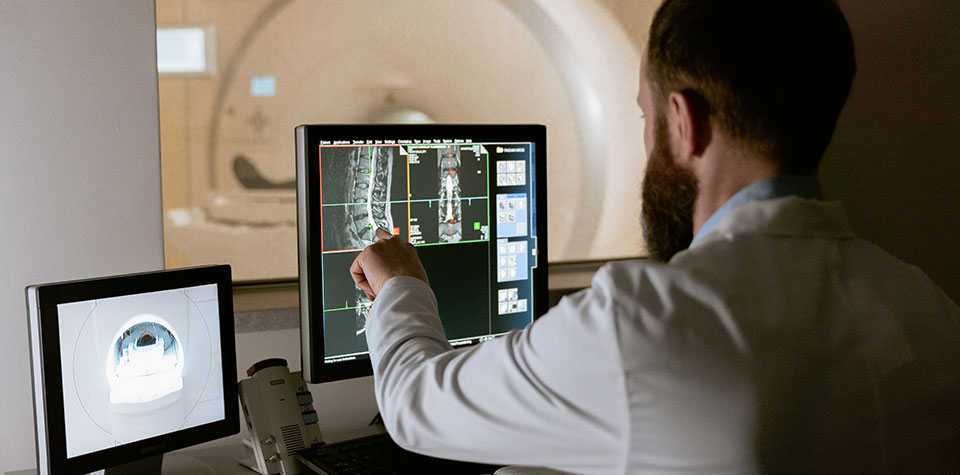If you’re considering a career as a radiologic technologist, it’s important to know what kind of salary you can expect in this field. After all, salary is a key factor in many people’s career choices, and can have a significant impact on quality of life. So, what is the highest salary for a radiologic technologist?
In this post, we’ll dive deep into the realm of radiologic technology and uncover the fascinating world of salaries and discover how you can pave your way to success at Cambridge College of Healthcare & Technology’s cutting-edge Radiologic Technologist program.
So, let’s dive in!
What Is a Radiologic Technologist?
A radiologic technologist is a healthcare professional specializing in medical imaging procedures. They play a crucial role in capturing diagnostic images of a patient’s internal structures, aiding physicians in accurate diagnoses.
Radiologic technologists are skilled in operating various imaging equipment, such as X-ray machines, CT scanners, MRI machines, and mammography equipment. They work closely with patients, explaining procedures, positioning them correctly, and ensuring their safety during the imaging process.
Factors Affecting Radiologic Technologist Salaries
Several factors can influence the salary of a radiologic technologist, and attending a reputable radiologic program like the one offered at Cambridge College of Healthcare & Technology can indeed have a positive impact.
Here are some factors that can affect radiologic technologist salaries:
- Education and Training: The level of education and training plays a significant role in determining salary. Attending a well-regarded radiologic program can provide students with a solid foundation of knowledge and skills, increasing their market value and potential for higher-paying positions.
- Credentials and Certifications: Obtaining additional certifications and credentials beyond the basic requirements can enhance a radiologic technologist’s earning potential. These may include certifications in specialized imaging techniques or advanced modalities, such as mammography or cardiovascular-interventional radiography.
- Experience: Like many professions, experience is a key factor in salary growth. Radiologic technologists with several years of experience often command higher salaries compared to entry-level professionals. By providing comprehensive clinical experiences and hands-on training, programs like the one at Cambridge College of Healthcare & Technology can help students gain a competitive edge in the job market.
- Geographic Location: Salaries can vary based on the location of employment. Urban areas or regions with higher costs of living generally offer higher salaries to compensate for the increased expenses. It’s important to consider the regional job market and cost of living when evaluating potential salary ranges.
- Industry Demand: The demand for radiologic technologists in specific areas or specialties can influence salary levels. Radiologic technologists with expertise in high-demand areas, such as diagnostic imaging, nuclear medicine, or radiation therapy, may have more opportunities for higher-paying positions.
3 Top Paying Industries for Radiologic Technologists
Radiologic technologist graduates from Cambridge College of Healthcare & Technology can find employment in various industries, and some of these industries offer higher salaries than others. Here are a few of the highest-paying career paths for radiologic technologists:
- Scientific Research and Development Services: Radiologic technologists working in scientific research and development services can earn some of the highest salaries in the field, with a median annual wage of $80,290. These professionals may work in research laboratories or medical equipment manufacturing companies, utilizing their expertise to develop and improve imaging equipment and techniques.
- Outpatient Care Centers: Radiologic technologists working in outpatient care centers can earn a median annual wage of $67,720. These centers often specialize in diagnostic imaging services, providing a variety of imaging modalities to patients on an outpatient basis.
- Hospitals (State, Local, and Private): Hospitals employ the largest number of radiologic technologists and offer a median annual wage of $63,710. In these settings, radiologic technologists work alongside other healthcare professionals to provide imaging services to patients with a variety of medical needs.
Bottom Line
If you’re ready to take the first step towards a career as a radiologic technologist, consider attending Cambridge College of Healthcare & Technology. With a commitment to excellence in education and a focus on practical training, we’re confident that our program can prepare you for a successful and fulfilling career in this exciting field.
Contact us today to learn more and get started on your journey toward a rewarding career!


